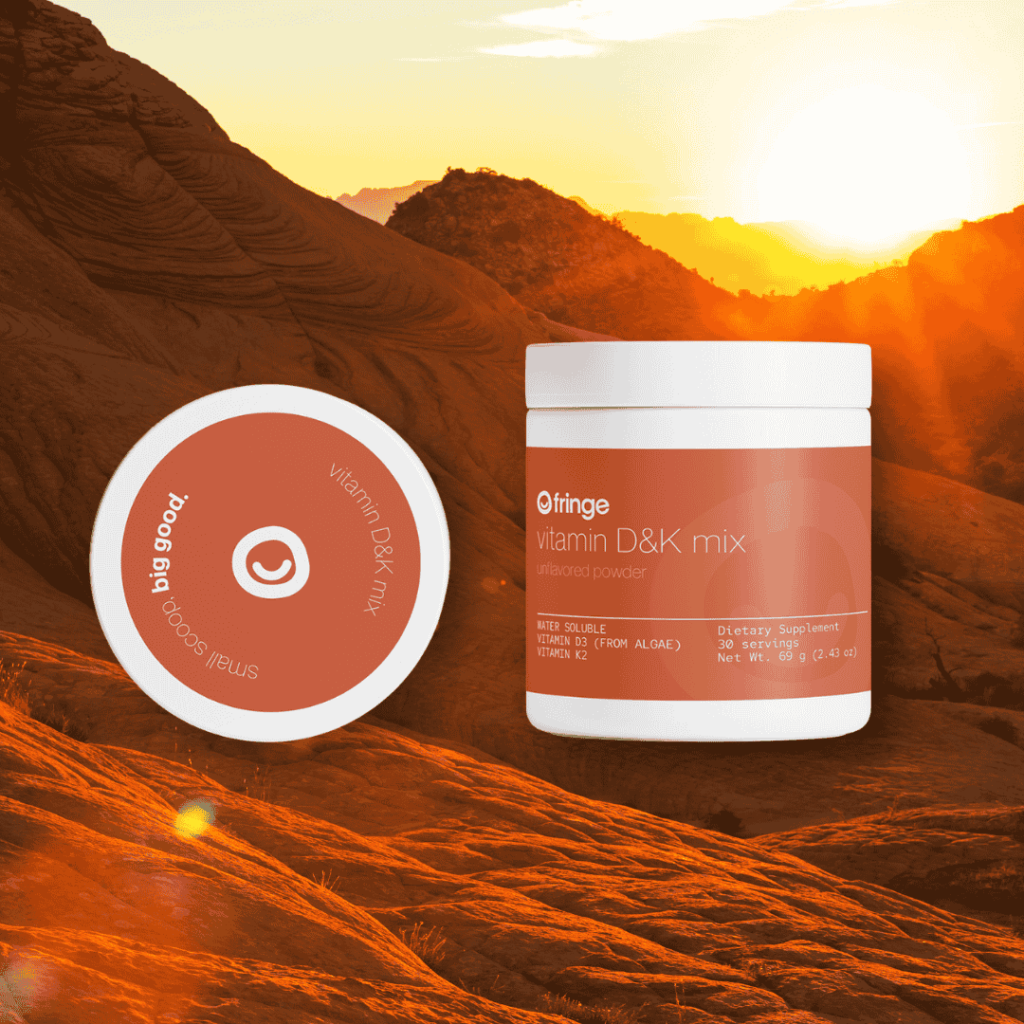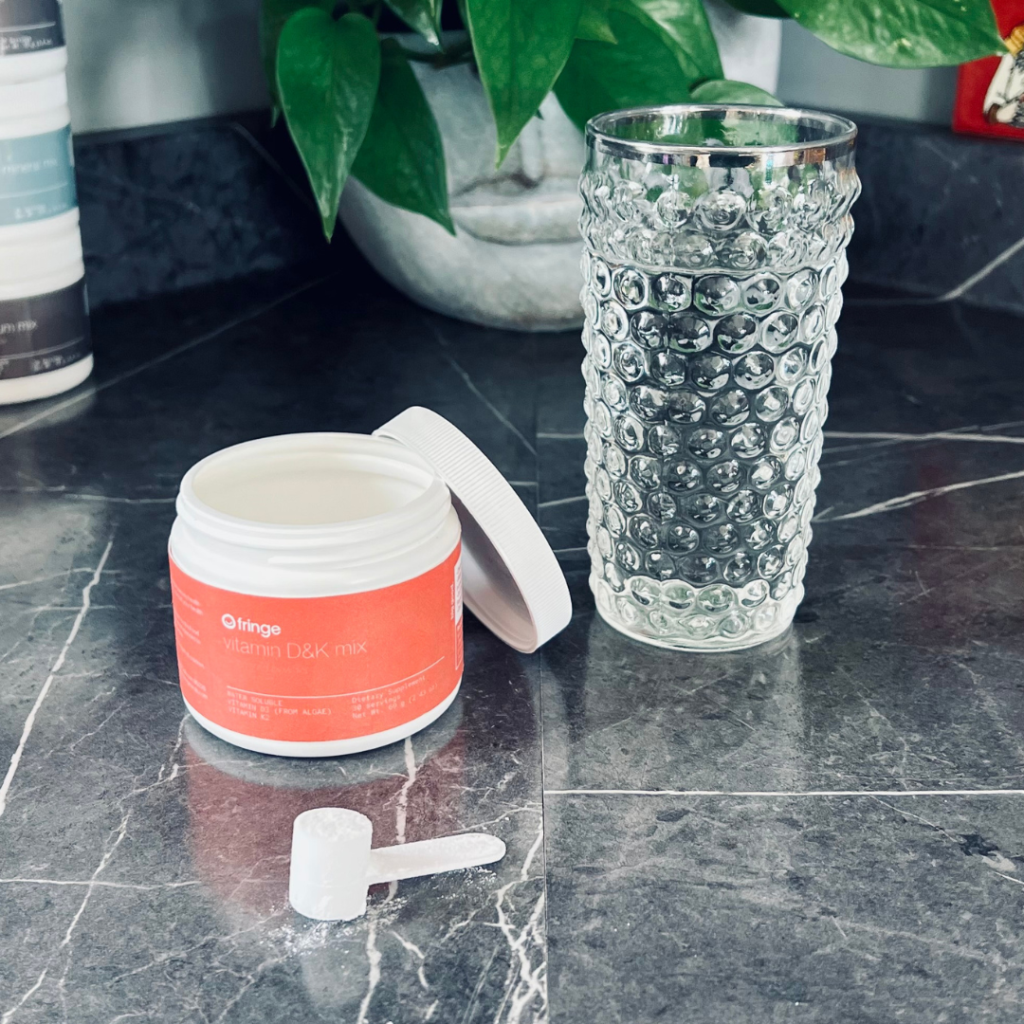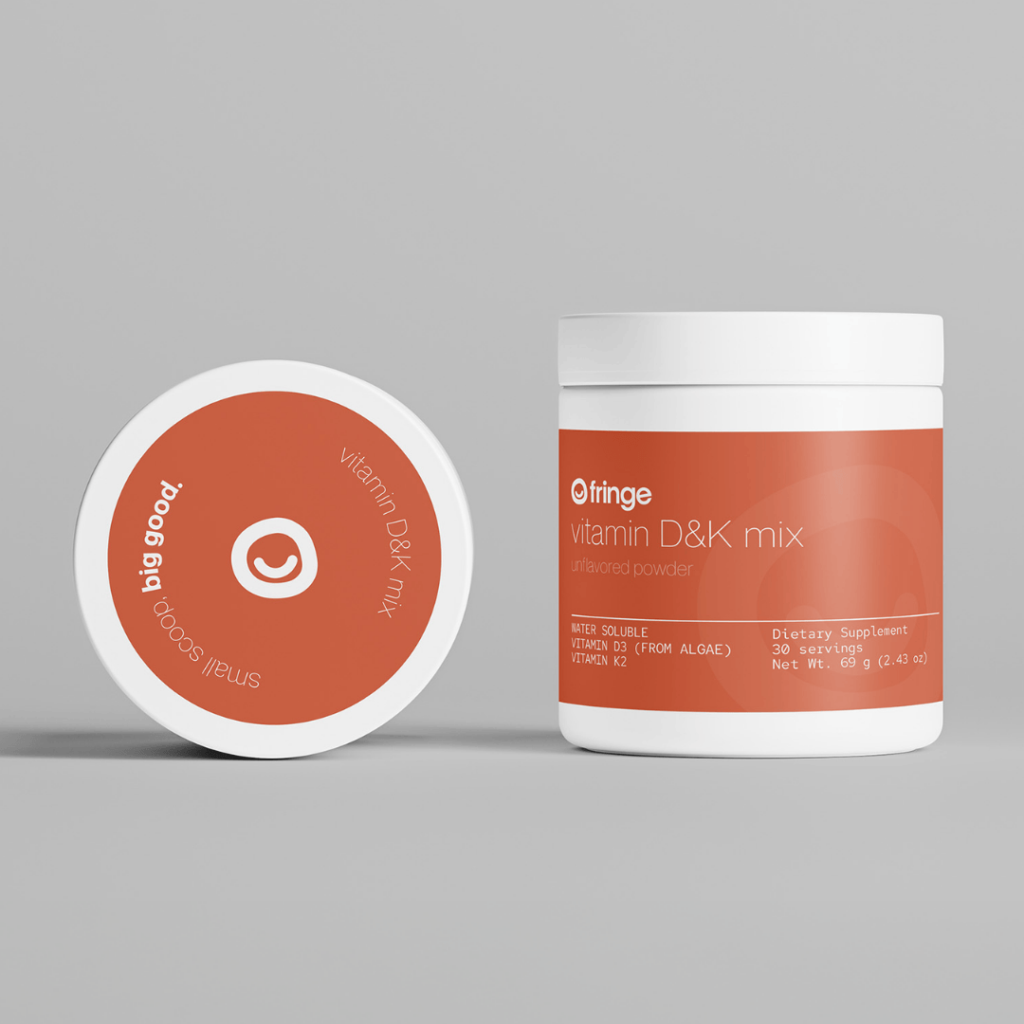Vitamin D and Immune Health
Vitamin D and Immune Health

What is vitamin D?
Vitamin D is a fat-soluble vitamin that plays a key role in many bodily processes, especially those related to bone strength and immune function. Unlike most vitamins, your body can actually make its own vitamin D — but only when your skin is exposed to direct sunlight. Specifically, ultraviolet B (UVB) rays trigger a reaction in the skin that produces a precursor to vitamin D, which is then converted by the liver and kidneys into its active form.

Beyond sunlight, vitamin D is found in a limited number of foods. Fatty fish like salmon, sardines, and mackerel are among the richest natural sources. Smaller amounts occur in egg yolks and beef liver, and many everyday products — such as milk, orange juice, and breakfast cereals — are fortified with added vitamin D. Because few foods naturally contain much vitamin D, and because modern lifestyles often limit sun exposure (due to indoor living, sunscreen use, and geographic location), vitamin D deficiency is surprisingly common, even in generally healthy individuals. For this reason, many people turn to supplements to maintain healthy levels year-round.
There are two main forms of supplemental vitamin D: D2 (ergocalciferol) and D3 (cholecalciferol). Vitamin D2 is typically derived from plant sources like mushrooms exposed to UV light, while D3 usually comes from animal-based sources such as lanolin (from sheep’s wool) or fish oil. There is one vegan source of vitamin D3: lichen, which is an organism comprised of algae or cyanobacteria combined with fungi. Both D2 and D3 can raise vitamin D levels in the blood, but D3 is generally more effective and better absorbed by the body. Absorption also depends on dietary fat, since vitamin D is fat-soluble — meaning it’s best taken with a meal that includes some healthy fat to help your body use it efficiently. However, vitamin D can be made to be water soluble, which greatly increases its bioavailability.
How does vitamin D affect the immune system?
Vitamin D plays a central role in helping the immune system function efficiently and stay balanced. Rather than simply “boosting” immune activity, it acts more like a modulator — supporting the body’s ability to defend against harmful invaders while also preventing the immune system from becoming overactive. This balancing act is crucial for staying healthy, as both underactive and overactive immune responses can lead to problems. Immune cells throughout the body — including in the skin, lungs, and gut — have receptors for vitamin D, meaning they can respond directly to its presence.

In the innate immune system — the body’s first line of defense — vitamin D enhances the ability to recognize and respond to threats quickly. It helps activate important immune cells which are responsible for detecting pathogens and signaling other immune responses. Vitamin D also promotes the production of antimicrobial molecules which act like natural antibiotics and can directly destroy bacteria, viruses, and fungi. These rapid-response mechanisms are essential for containing infections early, before they spread.
In the adaptive immune system — which provides more targeted, long-term protection — vitamin D helps fine-tune how immune cells behave. It influences T cells which help keep the immune system in check and prevent excessive inflammation. It also affects B cells, which are responsible for producing antibodies, by reducing unnecessary activation and promoting immune tolerance. In this way, vitamin D supports a balanced immune response — strong enough to protect, but not so aggressive that it turns against the body’s own tissues.
Is there evidence that vitamin D promotes effective immune function?
Yes, a growing body of research supports the role of vitamin D in promoting effective immune function in a wide range of immune-related outcomes, including:
Infections:
Some studies have shown an association between low levels of vitamin D and increased susceptibility to colds, flu, and viral illnesses as well as reduced infections with vitamin D supplementation. For example, a randomized controlled trial of vitamin D supplementation by frontline healthcare workers in Mexico found that participants receiving 4000IU/day of vitamin D had a lower rate of infection with SARS-CoV2 compared to those receiving a placebo. Similarly, another randomized controlled trial found that vitamin D supplementation by children aged 2 to 5 years with 2000IU/day reduced infection with influenza (but not enterovirus).

Autoimmune Diseases:
Because of its role in regulating immune function, vitamin D has garnered attention for its potential role in influencing autoimmune diseases. The VITAL study, a large-scale randomized trial, found that participants taking 2,000 IU of vitamin D daily (combined with omega-3 fatty acids) for five years experienced a 22% reduction in the incidence of autoimmune diseases, including rheumatoid arthritis and psoriasis, compared to those receiving a placebo. Similarly, a comprehensive review highlighted that numerous studies have found correlations between low vitamin D levels and both the onset and progression of MS. Additionally, a scoping review focusing on MRI findings in MS patients reported that higher vitamin D levels were associated with fewer new active lesions and reduced lesion volume, suggesting a potential protective effect.

Cancer:
Emerging research suggests that vitamin D may play a significant role in cancer prevention and management. A comprehensive umbrella review of 71 systematic reviews found that vitamin D₃ supplementation was associated with a 10% reduction in total cancer mortality (odds ratio [OR], 0.9; 95% CI, 0.87-0.92; P < 0.01). Additionally, an analysis indicated that achieving higher serum 25-hydroxyvitamin D [25(OH)D] concentrations could potentially reduce cancer incidence rates by approximately 70%. These findings underscore the potential of vitamin D in reducing both the occurrence and mortality of various cancers.

Inflammatory Responses:
Vitamin D also appears to help regulate inflammation in the body, acting almost like a natural “dimmer switch” for the immune system. Several studies have found that vitamin D can reduce the production of pro-inflammatory molecules — the kinds that are often elevated in chronic diseases — while increasing anti-inflammatory compounds. This balancing effect may help explain why low vitamin D levels are often linked with higher levels of systemic inflammation. For example, a study found that people with lower vitamin D levels had significantly higher levels of C-reactive protein (CRP), a common marker of inflammation in the blood. While more research is needed, these findings suggest vitamin D may support overall immune balance, not just in response to illness but also in maintaining a healthy baseline state.

How much vitamin D is needed for optimal immune function?
While it’s clear that vitamin D plays an important role in immune regulation, there is no universally agreed-upon amount that guarantees optimal immune function. Research continues to evolve, and current recommendations vary widely depending on the source. Most guidelines were designed with bone health in mind and may not reflect what’s truly needed for immune support or chronic disease prevention.
Blood Levels (25-hydroxyvitamin D)
Vitamin D status is measured by a blood test that checks for 25-hydroxyvitamin D [25(OH)D], the circulating form of the vitamin. Deficiency is typically defined as anything below 20 ng/mL (50 nmol/L), but for immune function, many researchers argue that this threshold is far too low. Levels of at least 30 ng/mL (75 nmol/L)are often cited as a baseline, but some of the strongest evidence — including large trials like the VITAL study — suggests that 40–60 ng/mL (100–150 nmol/L) may offer the most benefit for immune system balance and resilience.
Raising blood levels into this optimal range can be surprisingly difficult with low doses. Many people — especially those with darker skin, higher body weight, or limited sun exposure — require higher intakes for levels of blood vitamin D to increase.
Daily Intake (From Diet and Supplements)
Although official government recommendations suggest 600–800 IU per day for adults, this level is primarily intended to prevent bone disease, not to support optimal immune function. A growing number of clinicians and researchers now advocate for daily intakes of 2,000–5,000 IU to achieve and maintain optimal blood levels for immune health — especially in people who live in northern latitudes, use sunscreen regularly, or spend most of their time indoors.
In fact, research has shown that intakes up to 10,000 IU per day are safe for most people, with no evidence of toxicity at these levels in healthy individuals over extended periods. The commonly cited upper limit of 4,000 IU/day was set conservatively and has been challenged by multiple studies that demonstrate a much higher threshold for risk.
Ultimately, because vitamin D needs vary based on genetics, lifestyle, and current levels, the most reliable approach is to test blood levels periodically and tailor supplementation accordingly.

Why should vitamin D be taken with vitamin K?
Many health professionals recommend pairing vitamin D3 with vitamin K2(typically in the MK-7 form) to ensure that calcium metabolism stays properly balanced — especially when supplementing with higher doses of vitamin D. Vitamin D and vitamin K work together to support not just immune health, but also calcium balance and cardiovascular safety. One of vitamin D’s primary roles is to help the body absorb calcium from the diet. But once calcium is in the bloodstream, vitamin K helps direct it to the right places — such as bones and teeth — and away from soft tissues like arteries, where excess calcium could contribute to plaque buildup.
What makes Fringe Vitamin D & K Mix the best in the market?
Fringe Vitamin D & K Mix, providing 2,500 IU of vitamin D3 per day, aligns well with the evidence-based perspective of doses that support optimal immune function. It also has three unique characteristics that make it a better choice than other Vitamin DK supplements on the market:
- Water Solubility – Both vitamin D and K are fat-soluble vitamins, which makes their absorption of fat-soluble vitamins complex and results in a lower bioavailability than water-soluble vitamins (bioavailability refers to how much of the ingested nutrient is delivered to body tissues). The bioavailability of fat-soluble vitamins can be increased significantly through a safe and simple conversion process that makes them water-soluble and able to readily be absorbed through the walls of the small intestine. Research has demonstrated that water-soluble vitamin D is about twice as bioavailable as fat-soluble vitamin D.
- Vegan D3 – Research has clearly demonstrated that vitamin D3 is superior to vitamin D2 at raising blood levels of 25-hydroxyvitamin D. The vast majority of vitamin D3 supplements source the vitamin from sheep’s wool, which produces a waxy substance called lanolin. Because it is animal based, lanolin-derived vitamin D3 is not suitable for vegans. In contrast, Fringe Vitamin D & K Mix uses the only vegan source of vitamin D3, which is lichen. Lichens are living organisms that consist of fungus combined with algae or cyanobacteria. Lichen-derived vitamin D3 is identical to that produced from sheep’s wool, but is non-animal based, making it suitable for everyone.
- Vitamin MK-7 – Fringe Essentials Vitamin D & K contains vitamin MK-7, the most bioavailable form of vitamin K. It is derived from the fermentation of Nattō, which is plant-based and suitable for vegan diets.
other ingredients
The other ingredients in Fringe Vitamin D & K Mix are all natural and non-GMO. They include inulin and myo-inositol (also sometimes called vitamin B8) to help with dosing, medium chain triglyceride (MCT) oil to help with emulsification, and licorice extract for increased bioavailability. All our products are verified by independent third-party lab testing to ensure that they are free from molds, pesticides, mycotoxins, and heavy metals. We also leave out all the stuff you don’t want like artificial sweeteners, additives, gums, and ‘natural flavors’.

Conclusion
Vitamin D plays a vital role in helping the immune system function effectively and stay in balance. While there’s still some debate about the exact levels needed for optimal immune function, a growing body of evidence suggests that many people benefit from higher blood levels and daily intakes than current guidelines recommend. Maintaining healthy vitamin D levels is one of the simplest and most impactful steps you can take to support long-term immune resilience, and Fringe Vitamin D & K Mix is an ideal supplement to help you achieve this goal.
about the author
Dr. Genevieve Newton, DC, PhD spent close to 20 years as a researcher and educator in the field of nutritional sciences before joining Fringe as its Scientific Director. Gen’s job is to “bring the science” that supports Fringe’s products and education. She is passionate about all things Fringe, and is a deep believer in healing body, mind and spirit using the gifts of the natural world.
The contents in this blog; such as text, content, graphics are intended for educational purposes only. The Content is not intended to substitute for professional medical advice, diagnosis, or treatment. Always seek the advice of your healthcare provider.
